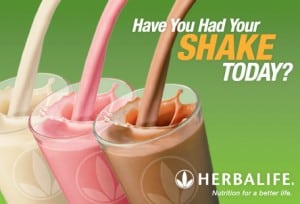 While many fitness enthusiasts go through a bit of trial-and-error with their meal planning until they come up with a plan that works for them, there are a few key points that all those that workout should keep in mind when trying to match their workout meals and snacks to their activity.
While many fitness enthusiasts go through a bit of trial-and-error with their meal planning until they come up with a plan that works for them, there are a few key points that all those that workout should keep in mind when trying to match their workout meals and snacks to their activity.
Carbohydrates are primarily what the body relies on for energy. The body needs a fairly steady source from the diet, since there’s only so much carbohydrate the body can store – in the form of glycogen – in the muscles and the liver.
It’s important to ‘top off the tank’ with some carbohydrate before an athletic event. In choosing what to eat, all fitness enthusiasts need to consider how much time they have to digest before they start their workout.
- Foods high in fibre and fat delay digestion and may increase the risk of stomach discomfort during exercise, so save them for after your workout.
- Light or liquid meals digest more quickly than solid food which generally requires a longer amount of time to be digested and absorbed .e.g. conusme a carton of yogurt or meal replacement drink.
- During continuous activity that lasts longer than an hour, you need to keep the carbohydrate coming in. Specially designed workout drinks are ideal for this purpose, since they provide fluid and salts as well as the right amount of carbohydrate to keep muscles well fueled; some also provide small amounts of protein that help with muscle recovery.
- Post-exercise, you must consume plenty of carbohydrate to replenish the stores in their liver and muscles. Ideally, you should try to eat within 30 minutes or so after your’e event or workout is over. Fruits, veggies, whole grains, beans and dairy products are all terrific recovery foods. This is the time to load back up on the higher fiber carbs since digestion time is no longer a concern.
- Whey and casein – proteins derived from dairy products – are also needed after exercise to help promote muscle recovery. A protein smoothie made with milk and fruit, a sandwich on wholegrain bread with a glass of milk, or some yogurt with a piece of fruit are all excellent post-exercise meal ideas.
Your at-a-glance what to eat and when guide for superior workouts
More than 3 hours to your event?
If you’re planning ahead, then eat a regular, balanced meal no less than 3 hours before your event.
Between 1 and 3 hours to start time?
If you have only an hour or two before your event, then enjoy a lighter, solid meal, maybe some cottage cheese and toast, or a bowl of low fibre cereal or take a Formula 1 Shake with fruit.
Less than 1 hour until you compete?
For athletes who have only an hour or less to digest before an event, choose something that will be easy on your stomach such as a smoothie or a yogurt or a Formula 1 Sport Shake made in water.
During the event?
Keep topping up – use a specific sports hydration drink.
After the workout?
Post-exercise, the body is ready to take up plenty of carbohydrate to replenish the stores in the liver and muscles. Ideally, those doing workouts should try to eat within 30 minutes or so after the event is over. Recovery is two-fold, and requires carbohydrate for replacing glycogen stores as well as protein for rebuilding damaged muscle. Consume a recovery smoothie.
Nutrients are as important as carboydrates and protein.
“Science shows that proper nutrition at the cellular level is at least as important to both health and athletic performance as strength training, cardiovascular training, and recovery time. In fact, it’s the foundation for everything else. When you’ve trained as hard as you can, supplementing your diet with nutrients designed specifically to boost muscle growth, recovery, circulation, energy efficiency, and resilience of muscle fibers and connective tissue make all the difference “. Dr. Andrew Myers
Herbalife have a range of meal replacement drinks: Formula 1 , Formula 1 Sport, Formula “Free From” Gluten and Lactose, and hydration supplements and recovery shakes.
